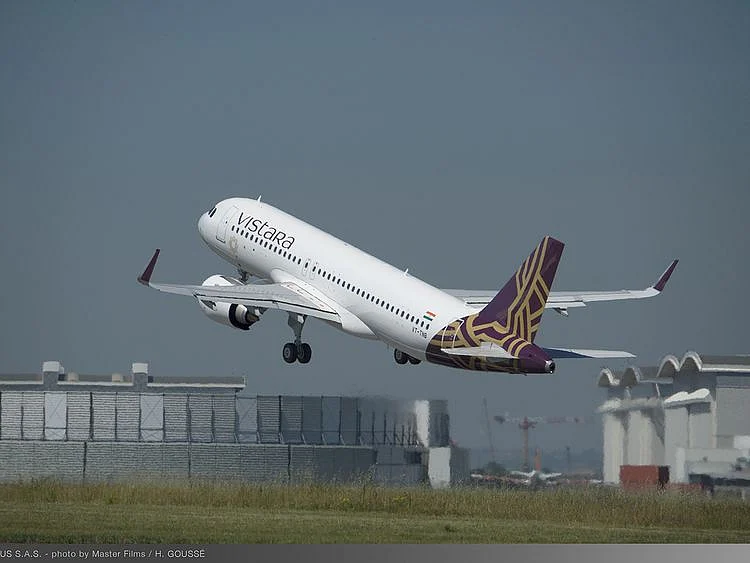Indian airline Vistara wants to bring back its services to Sharjah, Doha
Airline's CEO Vinod Kannan hopeful of adding more Gulf destinations after Dubai, Jeddah

Dubai: The Indian airline Vistara is in talks with aviation authorities to have more destinations in the Gulf, according to the CEO.
“We used to operate flights to Doha and Sharjah under the air bubble agreement (during Covid times), but had to pull back once normal scheduled operations resumed,” said Vinod Kannan, CEO. “We are looking at more points wherever bilateral rights are available – that will be announced in due course.”
The airline, owned by Tata Sons and Singapore Airlines, has services to Dubai, Frankfurt, Paris and London, with Jeddah to be added from August.
Intense competition
While Vistara takes it one route at a time, Air India, which was acquired by Tata earlier this year, is looking to regain its dominant position on long-haul routes from India, including into and out of the Gulf. Jet Airways, under a new consortium, will launch domestic operations this year. All this translates to a hyper-competitive aviation market, within India and out.
“There is always going to be competition and that includes Middle East airlines such as Emirates, Etihad and Qatar Airways,” said Kannan. "We are the only Indian airline with a Premium Economy product – the support that we have for the Dubai route is quite positive and we have established a name for ourselves."
Fuel costs
With jet fuel making up around 40 per cent of operating costs for airlines, the increase in prices had resulted in higher costs to fly. The Value Added Tax (VAT) on jet fuel has been reduced in many Indian states thanks to efforts by India's civil aviation ministry, said Kannan. “But high fuel prices are a matter of concern for all airlines operating in India and another source of concern is the rupee, which is weaker relative to the dollar.”
The Indian government imposed export taxes on petroleum products and there were concerns that it would impact flights leaving the country. The authorities later clarified that it rolled back excise duty on aviation turbine fuel (ATF) used for international operations.
“Over the last couple of days, fuel prices have gone down thanks to recession concerns and whether that stays is something to be seen,” said Kannan. On Saturday, Indian oil marketing firms reduced jet fuel prices by 2.2 per cent to reflect a fall in global crude prices.
Kannan suggested that this may not result in an immediate fall in ticket prices. “Airfares are also a function of other things like demand and capacity – July, August and September are a weak demand period in the Indian market,” said Kannan.
Vistara operates around 250 flights per day, an increase of 35 per cent from even pre-Covid levels. The airline has added more than 10 aircraft in these two years. “In terms of load factors, we are still slightly short of the mid-to-high 80s we used to see during pre-pandemic times,” said Kannan.
In talks with Heathrow
Vistara operates a daily flight to London. “We are working with Heathrow to see how we can curtail capacity (over the London airport's limit on daily passengers) – it’s an ongoing discussion like all other airlines,” said Vinod Kannan, Vistara’s CEO. “There is already a customer service impact because of baggage and travel time. We are trying to address those, but our impact is limited compared to some of the bigger players.” Last week, London’s largest airport announced an unprecedented two-month cap on passenger traffic to contain chaos over cancelled flights and staff shortages.
Network Links
GN StoreDownload our app
© Al Nisr Publishing LLC 2025. All rights reserved.